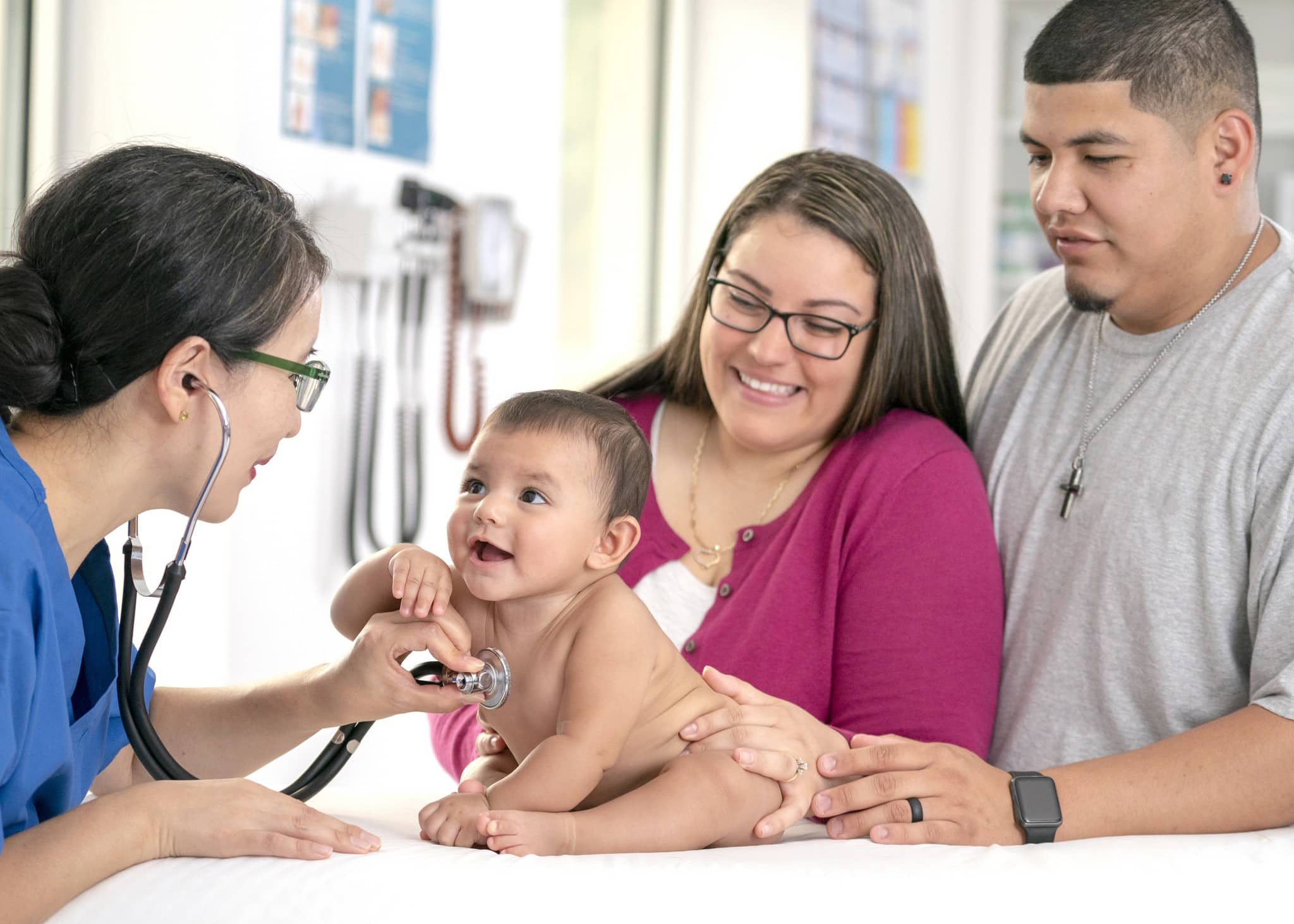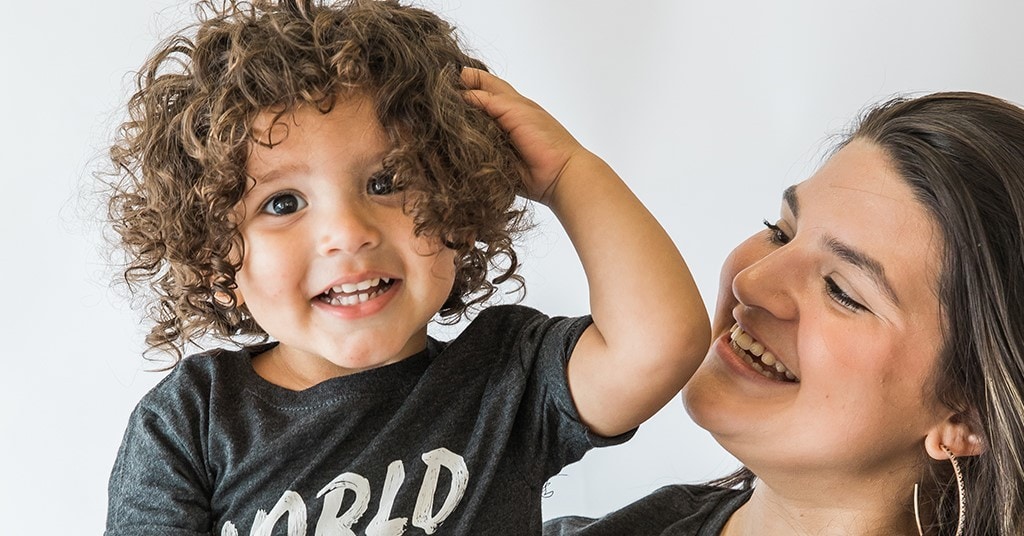Let’s review the various sources of financial help for pregnant women that may be available to you.
Federal Programs for Pregnant Women
There are several government organizations that offer assistance to pregnant women. Many of these services are funded by the federal government but you may have to apply through your state’s health department or agency first. Financial assistance for pregnant single mothers and others may be available through some of these sources as well.
Women, Infants, and Children Program
The Special Supplemental Nutrition Program for Women, Infants, and Children (WIC) program offers nutritional food and education. You can also get some screening services with referrals to other agencies as needed. Women are eligible for services throughout pregnancy and up to 6 months after birth or the end of the pregnancy. If you are breastfeeding, you may qualify for up to one year or for 6 months after birth if you are not breastfeeding.
The WIC program issues checks, electronic cards, or vouchers so that you can purchase specific foods to improve the nutrition of the recipients. Examples of these foods include infant formula and cereal, fruits, vegetables, eggs, cheese, peanut butter, and other healthy foods.
To be eligible for this assistance, your income must be at or below 185 percent of the U.S. Poverty Income Guidelines and meet other WIC eligibility requirements to qualify for the program. If you or other family members participate in another benefit programs like Medicaid, you will automatically be eligible for this service. Click here to apply.
Pregnancy Medicaid
Medicaid is a state-administered program that may allow you to obtain important heath services – especially during pregnancy. The general guidelines for eligibility for Medicaid are set by the Federal government; however, each state sets up their own specific requirements for eligibility and these can differ from state to state.
Temporary Assistance for Needy Families
The Temporary Assistance for Needy Families (TANF) program can also offer assistance to pregnant mothers if you are pregnant with no resources. TANF is federally funded but administered by the state; the goal is to provide temporary financial assistance at the same time while helping you find a job to better support yourself. The financial aid can be used to purchase food, clothing, housing, utilities, and medical supplies.
Low-income families with children and pregnant women who are in the last three months of pregnancy are typically able to receive these benefits. Each state has specific eligibility requirements like with Medicaid. In order to apply, you should contact the Medicaid office in your state.
Supplemental Nutrition Assistance Program (SNAP)
Previously known as the food stamp program, SNAP provides low-income and no-income families with debit cards to purchase groceries. A household be be one person or a group of people who buy and make their food together. Eligibility requirements vary from state to state but you need to be close to the federal poverty line to qualify. Check your state’s specific eligibility guidelines and services.
Affordable Housing
The U.S. Department of Health & Human Services operates the Maternity Group Homes for Pregnant and Parenting Youth (MGH) Program to support homeless pregnant and/or parenting young people, as well as their dependent children. Youth must be between the ages of 16 and 22 to enter the program.
The Housing Choice Voucher Program, also known as Section 8, helps low-income earners and their families with rental expenses. The program is managed by the Department of Housing and Urban Development (HUD) and has helped millions of low-income families keep a roof over their heads. Under Section 8 housing assistance program, if you qualify, HUD will directly pay a housing subsidy on behalf of your family to your landlord. You’ll then pay the difference between the subsidy and the total amount of rent due. The first step in the qualification process is to fill out a formal application.
Rent Help for Low-Income Rural Families
If you live in a rural community, the US Department of Agriculture (USDA) can help pay your rent if you’re experiencing housing problems. This assistance is a subsidy and is available through the Rural Development program. The USDA also provides housing assistance to the disabled and elderly, and many others. This is a special program that falls under the Section 8 housing assistance program, so the first step in the qualification process will be to apply online.
Free Health Care Programs
The Health Resources and Services Administration provides low-income families with free health care access in all 50 states. To see if your family qualifies, start by reviewing the guidelines. If you do, accessing medical care is as simple as locating a qualifying clinic. Once you arrive, you’ll fill out several forms prior to receiving the medical care you are seeking.
Dental Care
Many government and privately funded dental clinics offer their services for free. If you and your family qualify, you’ll have access to free basic dental care, including checkups, referrals, and medications. Look up a complete list of contacts in each state online.
Childcare Subsidies and Vouchers
The federal government provides grants and funding to states and local communities to help qualified low-income families access affordable day care services. To qualify, you must be employed, going to school, or enrolled in an approved job training program before taking advantage of the day care services offered under this program. Funding provided by the government only covers a portion of overall childcare expenses, however, which means you’ll still be responsible for the difference. To see if you qualify and to find a local participating facility, call 800-424-2246.
Other Helpful Financial Resources to Help Pregnant Women
Energy Bill Assistance
The Low Income Home Energy Assistance Program (LIHEAP) helps millions of families nationwide overcome this problem. To learn more, contact LIHEAP directly at 202-401-9351.
Religious Charities
There are a variety of religious organizations that may offer help to pregnant women. Since financial pressures and lack of support may contribute to the decision about abortion for some women, these groups seek to financially support women who may want assistance in carrying the pregnancy to term. They may supply clothing and baby items as well.
For example:
Pregnancy Resource Centers offer counseling, medical services and may be able to help you secure local financial resources in your community. Click to find the pregnancy centers near you.
Catholic Charities in many communities offers assistance to women with unplanned pregnancies. They provide pregnancy counseling and adoption services as well. You can check with the Catholic Charities in your area if you are in need of assistance with your pregnancy.
Adoption Agencies may offer financial assistance if you’re considering placing your baby for adoption. This assistance may come from the parents you choose for your baby.
Sources:
U.S. Housing and Urban Development
USDA Rural Development
Office of Community Services
Health Resources and Services Administration
Need Help Paying the Bills






